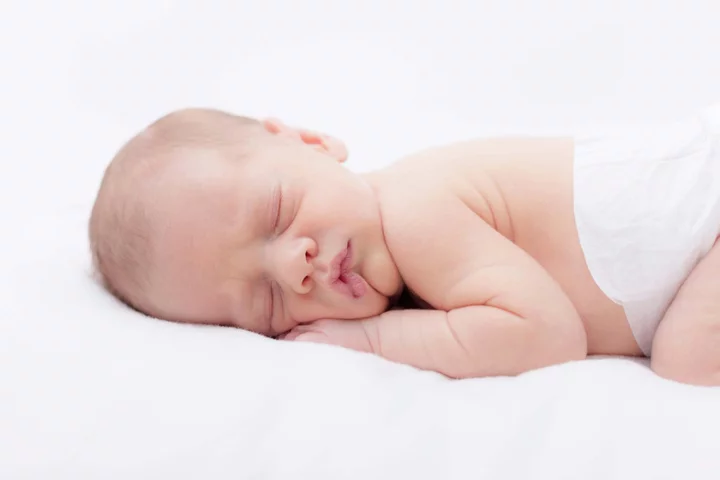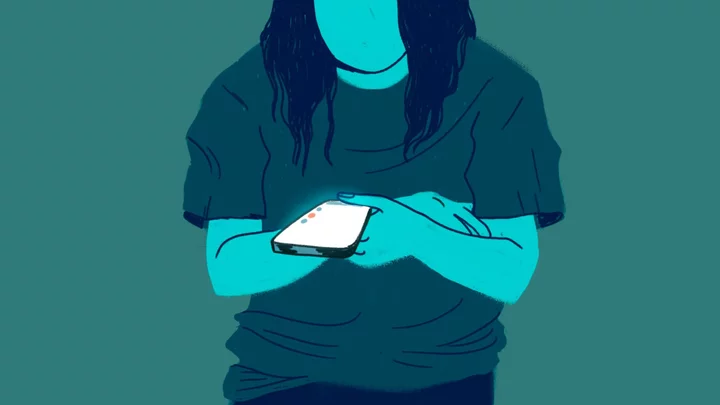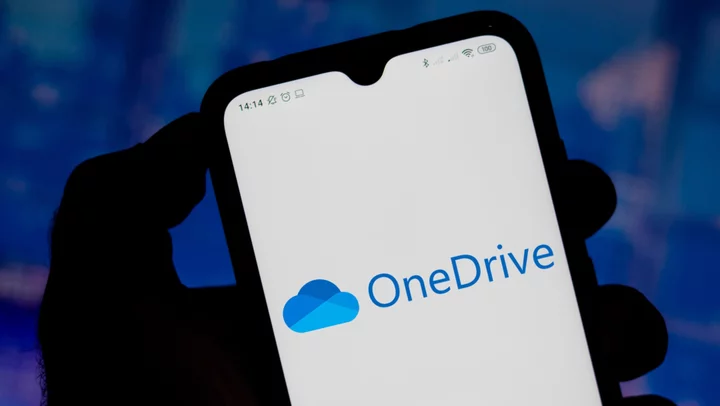
Lucid Scores a Sorely Needed Win With Aston Martin EV Order
For two companies struggling to stem losses and sort out operational issues, Aston Martin Lagonda Holdings Plc and
2023-06-27 23:22

Barbie's DreamHouse available to rent on Airbnb ahead of movie's release
Pack your bags Barbie fans, this summer's holiday destination is clear: The Malibu DreamHouse.
2023-06-27 21:45

Group B Strep: 8 things every parent should know
Group B streptococcus (GBS) is the most common cause of life-threatening infection in newborn babies, and it can kill within hours – yet the UK doesn’t routinely test pregnant women for it. The charity Group B Strep Support (GBSS) says an average of two babies develop a GBS infection every day in the UK, and while most recover, one baby dies as a result of the infection each week, and one baby a week survives with life-changing disabilities. GBSS says around two to four out of every 10 women in the UK will carry group B strep in their rectum, vagina, or intestines, although most of them won’t experience any symptoms. However, if a woman’s pregnant, group B Strep can affect her baby around the time of birth. Speaking to mark July’s Group B Strep Awareness Month, GBSS chief executive Jane Plumb, who set up the charity in 1996 with her husband Robert after their son, Theo, died from GBS infection aged 17 hours, stresses that raising awareness of Group B Strep can save babies’ lives and minimise the heartache the illness often causes. “Group B strep is the most common cause of severe infection, including sepsis and meningitis, in newborn babies, yet people are not routinely told about it during pregnancy. This isn’t good enough,” she says. Here’s what all parents-to-be and new parents should know about GBS… 1. It can cause meningitis, sepsis and pneumonia As the most common cause of infection in newborns, Plumb says GBS, which affects around 800 babies in the UK every year, can lead to serious conditions including meningitis, sepsis and pneumonia. As a result, around 50 babies will die every year, and 75 will survive with a long-term disability. “Group B strep awareness is a matter of life and death,” says Plumb. “By shining a spotlight on this silent infection, we can save precious lives and spare families from unnecessary heartache.” 2. GBS infections can be prevented in babies Most GBS infections in newborn babies can be prevented, says Plumb, by identifying women with risk factors. “One of the risk factors is carrying the bacteria during pregnancy,” she says, “and then intravenous antibiotics can be offered during labour to minimise the risk of the baby developing a group B strep infection.” 3. A mother carrying GBS doesn’t necessarily mean her baby will be infected GBSS says around 20-25% of women carry GBS in their vagina and/or lower intestines, but if a woman is carrying GBS when she gives birth, the risk of her baby developing early-onset GBS infection is about one in 400 if antibiotics aren’t given in labour, or around one in 4,000 if antibiotics are given. 4. It’s not just newborn babies that get GBS infections Although most GBS infections develop in the first two days of life, they can develop later, though they are rare after the age of three months, says Plumb. “Knowing the key signs is vital – every family needs to know about GBS,” she stresses. 5. Most women who carry GBS don’t have symptoms GBS carriage isn’t associated with symptoms, says Plumb, so most people who carry the bacteria won’t show any signs of it. 6. Antibiotics may be given to some women during labour The Royal College of Obstetricians & Gynaecologists recommends that if GBS is detected in a woman during pregnancy, or if she’s previously had a baby affected by GBS, she should be offered antibiotics in labour to reduce the risk of the baby being infected. 7. There’s no routine GBS testing in the UK The NHS doesn’t currently provide routine testing for GBS, although other high-income countries do. Plumb says UK National Screening, which sets screening policy in the UK, says there isn’t enough evidence to introduce antenatal GBS screening for all pregnant women in the UK, although a randomised control trial is due to report in 2025, and the evidence is then expected to be reviewed. Plumb says: “The evidence shows clearly that antenatal testing is better than a risk-factor strategy for preventing GBS infection in newborn babies, and GBSS think the UK should catch up its peers around the world by introducing this. Most high-income countries do so, including the USA, Canada, Hong Kong and most of Europe – why are we last on the list?” 8. Pregnant women can be tested privately GBSS says pregnant women can be tested privately for GBS, usually at between 35-37 weeks of pregnancy, at some clinics, or by doing a DIY test with a kit, which costs about £40. GBSS helpline 0330 120 0796. Read More Charity boss speaks out over ‘traumatic’ encounter with royal aide Ukraine war’s heaviest fight rages in east - follow live Princess Diana’s ‘black sheep’ jumper predicted to sell at auction for up to £70,000 The best onstage fashion at Glastonbury Sarah, Duchess of York has operation for breast cancer: What to know about mammograms
2023-06-27 15:27

Carnival Shares Tumble as ‘Solid’ Results Fail to Impress Investors
Carnival Corp. shares tumbled by the most in more than seven months after the cruise-ship operator reported quarterly
2023-06-27 04:53

Tourist filmed carving his girlfriend's name into Rome's Colosseum
Italy's culture minister is calling for a man to be "identified and sanctioned" after he was filmed allegedly carving his and his fiancée's names into the Colosseum in Rome.
2023-06-27 01:25

Putting salt in tap water and drilling wells in parks: one country's desperate quest to avoid running dry
Uruguay, grappling with a multi-year drought and high temperatures, is running dry.
2023-06-26 18:15

7 skills to help reframe negative thoughts when social media makes you feel lousy
Life is full of opportunities to feel bad about yourself. But if we're honest about
2023-06-25 17:45

10 Common Problems With Microsoft OneDrive and How to Fix Them
Microsoft OneDrive is a helpful tool for backing up and synchronizing files online and across
2023-06-24 23:45

10 Things You Probably Didn’t Know About the Fourth of July
One Founding Father thought we were celebrating on the wrong day, but that hasn’t stopped Americans from pulling out all the stops on July 4.
2023-06-24 01:21

Food: Bangor researcher helps saves crucial Nepalese rice crop
The high-altitude rice variety in South East Asia is threatened by a major plant disease.
2023-06-23 23:54

15 best documentaries on Max to learn something new
Max offers an extraordinary selection of movies, and its documentary library alone has enough gems
2023-06-23 17:58

5 French skincare secrets you need to know
There’s a reason the French look is held to the highest standard in beauty. Everyone wants a piece of that effortlessly cool aesthetic, and French beauty products are some of the best in the world. Dr Marine Vincent, founder of The French Pharmacy, notes the French approach favours “a more minimalistic and effortless look”. She says: “French women lean towards a more natural aesthetic, prioritising a prevention-focused and holistic approach to beauty. “French women value taking care of their skin as a form of self-care and overall wellbeing. They understand that healthy skin is a reflection of a healthy lifestyle.” Plus, Vincent says “embracing your individuality and cultivating self-confidence are key elements of French beauty”. If you want to get more of a Parisian glow, take a look at some of these French skincare secrets… 1. Adopt positive habits early on “In French culture, skincare is indeed ingrained from a young age, and I believe it comes again from the wellbeing and holistic approach to beauty,” Vincent reflects. “We see it as part of our self-care, not as an option.” She says she learned the “significance of using quality products” growing up, and her mother “taught me to cleanse, moisturise and protect my skin from an early age” – with her first moisturiser from classic French pharmacy brand Avène. “Time has passed and I now gave the same advice to my 12-year-old daughter,” Vincent adds – now adding sunscreen into that list, which is “one of the most effective anti-ageing skincare tools”. Part of forming these positive habits is consistency, which Vincent says is “key in skincare, as it helps to maintain the skin’s balance and prevents common issues such as acne or premature ageing, so starting early will allow you to establish good habits early on, making it easier to maintain them in the long-term”. 2. Use French pharmacy products “If you’re looking for effective skincare without all the fancy marketing and high price tags, French pharmacy beauty products are definitely worth exploring,” says Vincent. “They’ve got a solid reputation for a reason.” One of the reasons they’re so good is they “focus on simplicity”, Vincent suggests. “French skincare brands often prioritise using key active ingredients that are known to work wonders for the skin. It’s all about delivering visible results without any fuss.” Look out for brands like La Roche-Posay, Avène, Caudalie and Bioderma – helping you get science-based, effective products without breaking the bank. Bioderma Hydrabio Serum, £20, Escentual Caudalie Vinopure Moisturizing Mattifying Fluid, £25 3. Try endermologie This secret is a bit pricier than pharmacy skincare products, but many French women swear by it. Endermologie is a treatment where a therapist uses a machine with various settings on your body or face. “It is very renowned for its amazing results, primarily on cellulite, sagging skin [and] body contouring,” suggests LPG Endermologie ambassador Nathalie Paradis. She says it’s “powerful” in “increasing firmness, but at the same time very respectful of the skin, especially when it’s fragile”. Endermologie isn’t quite a household name in the UK, but is much more prominent in France where there’s a more holistic approach to beauty. Paradis says: “We are facing a new era where beauty cannot be separated from health, and where people can benefit from this technology to reach their goals of wellbeing in an increasingly stressful environment.” Becoming increasingly popular in UK salons, it can also be used to treat scars or scar tissue. 4. Get the ‘French touch’ Vincent says thermal water spray is the extra “French touch” you can add to your beauty bag and use “all year long”. According to Vincent, some of the best uses of thermal water spray are before applying hyaluronic acid serums (you “need moisture to be effective”, she says), to “fix your make-up”, to refresh your face in summer and “to layer in between your skincare steps and add an extra layer of hydration”. Avène Thermal Spring Water Spray for Sensitive Skin, £15.50, Boots Vichy Mineralizing Thermal Spa Water, £9, Look Fantastic 5. Use a secret weapon Is cica cream in your routine? This is the nickname for centella asiatica creams and “long before [it was a] TikTok trend, all French women have one in their beauty bag”, Vincent says. According to Vincent, it’s useful for any skin irritation (cracked lips, burns, baby rashes, etc), dry areas (like elbows or knees), after sun, as a skin recovery mask and as a moisturiser. La Roche Posay Cicaplast Balm, £10, Boots Bioderma Cicabio Pommade – Repairing Ointment, £8, Escentual Read More Charity boss speaks out over ‘traumatic’ encounter with royal aide Ukraine war’s heaviest fight rages in east - follow live What happens if you don’t wash your water bottle often enough? Prince George visits Eton with parents Prince William and Kate Middleton King Charles and Queen Camilla ecstatic after getting their first Royal Ascot winner
2023-06-23 16:18
